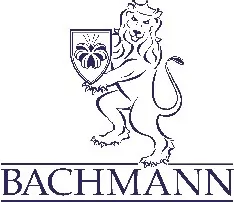THE INTERNATIONAL COMPANY
The Income Tax (International Bodies) (Guernsey) Law, 1993 introduces the "International Company" ("IC"), an additional product for foreign investors wishing to use the services of a Guernsey based entity on a tax efficient basis.
At present the choice is paying tax at the standard rate of 20% on all income and being exempt from tax if the relevant conditions can be met. (There is a further option available to captive insurance operations which may elect to pay tax on a "sliding scale" basis). From 1993 an IC may be used for the conduct of international trading activities which generate income derived exclusively from non-residents of Guernsey.
WHO MAY APPLY?
IC status is available to:
- Guernsey incorporated companies
- foreign incorporated companies
- Guernsey branchs of non-resident companies
- limited partnerships
TYPICAL ACTIVITIES
Examples of international activities for which an IC may be appropriate include:
- group financing operations
- new captive insurance companies
- industrial and commercial activities
- overseas investment
An IC must satisfy the Income Tax Authority that its activities are such that it would be appropriate fop it to be registered as an IC.
BENEFICIAL OWNERSHIP REQUIREMENTS
Subject to the latter paragraph, the beneficial ownership requirements for an IC stipulate that no resident of Guernsey may have any beneficial interest in it. A further condition necessitates the disclosure of beneficial ownership details to the Financial Services Commission ("the Commission).
An IC may only be beneficially owned by non-residents or by a Guernsey resident company that is itself wholly owned by non-residents.
An IC is not wholly beneficially owned by persons who are not resident in Guernsey if any person resident in Guernsey has any beneficial interest I it other than an interest:
- as the holder of a share or debenture in a quoted body corporate which itself has a beneficial interest in the IC; or
- as a loan creditor of the IC, if that person is a bank; or
- as a nominee or trustee.
Any person or body exempt from Guernsey tax by virtue of section 40 of the Income Tax Law may have a beneficial interest in an IC. This allows, for example, an exempt company or another IC to have such a beneficial interest.
RATE OF TAX
Although an IC is resident in Guernsey for all the purposes of the Income Tax Law, it will not pay tax at the 20% standard rate. Instead it will pay at a rate above zero but not more than 30%. In all other respects however (but see paragraph 30) the provisions of the Law will apply, e.g. the computation of business profits, loss relief, entitlement to annual allowances, etc.
DETERMINATION / DURATION OF RATE OF TAX
The rate of tax is determined on a case by case basis. A flexible approach is used, taking into account the business plan and international circumstances of the applicant. Once set the rate is fixed for a five year term.
WHO MAY NOT APPLY?
The following entities are not eligible to apply for IC status:
- a bank;
- a registered or exempt insurer, unless it qualifies as an exempt offshore insurer under the Income Tax Law;
- a company which, under the Income Tax Law, has at any time been either regarded as resident in Guernsey or exercising any functions in Guernsey (but without IC status) or one which has been granted tax exempt status.
TRANSITIONAL ARRANGEMENTS FOR CERTAIN GUERNSEY COMPANIES
As a transitional measure a Guernsey company registered on or after 9th December, 1992 is permitted to apply for IC status provided it applies before 30th September, 1993.
The content of this article is intended to provide a general guide to the subject matter. Specialist advice should be sought about your specific circumstances.
For further information contact Peter Crook on Tel: +44 (0) 1481 712706 or visit the Guernsey Financial Services Commission Web Site at:
http://gfsc.guernseyci.com

